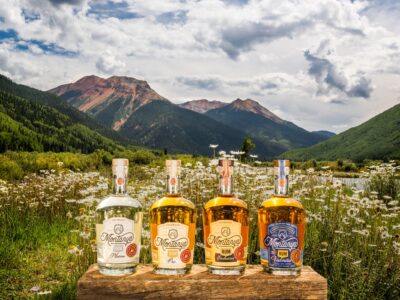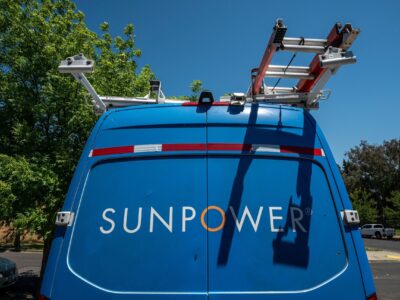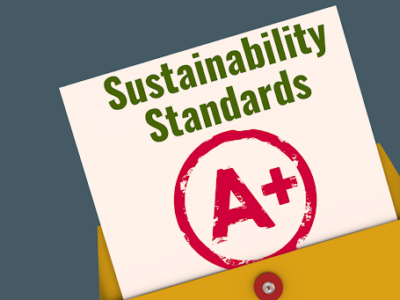From the Garage to the Coffee Farm
If you walked into an Equator Coffee shop today, exchanged smiles with the talented staff, ordered a delicious cappuccino, and drank in the warm coffee perfection, you probably wouldn’t imagine that such a polished, refined company started in a garage in 1995. Sharing the same startup office space as some other industry revolutionaries like Apple, Microsoft, and Amazon, wasn’t Helen Russell and Brooke McDonnell’s intention when they started Equator Coffees. They founded their coffee company because they believed, as they still do, that “better coffee could create a better world.” In the 25 years since, Equator has proved their belief to be true, and each day they work to put more good in the world than was there the day before.
Ever since Brooke’s first trip to Guatemala to see coffee production first-hand, the team at Equator committed themselves to sourcing fair, equitable coffee. In fact, in 1999 they became one of the first partners of Fair Trade USA, kicking off a relationship that has spanned more than two decades and will continue to flourish in the future. “Fair Trade has been a good jumping off point because most of our Fair Trade relationships become multi-year relationships. We often end up visiting the farms dealing more directly with them,” said Devorah Freudiger, Director of Coffee Culture at Equator Coffees.
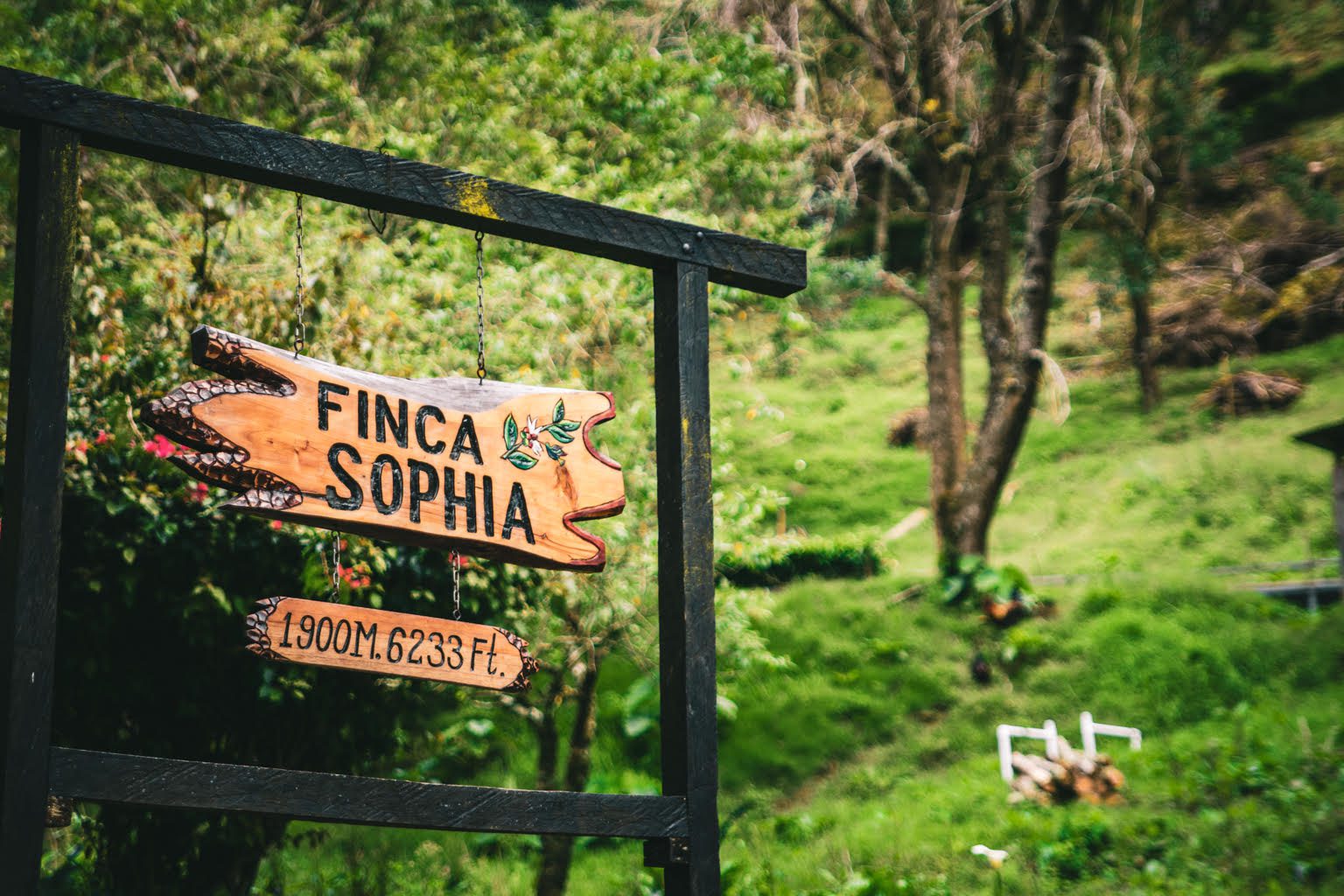
Partnering with world-renowned coffee fanatic Willem Boot of Boot Coffee Campus, Equator built their very own coffee farm in the highlands of Volcán, Panamá. Helen, Brooke, and Willem built their Finca Sofia coffee farm on former cow pastures constructing their own shaded coffee forest out of the volcanic earth. This farm is a place to experiment with new coffee varieties, grow rare, small-yield coffee trees, and generally push the boundaries of coffee. Their latest crop of Gesha coffee broke all the records at the 2020 Best of Panama coffee auction selling for $1,300.50 per pound.
Building a coffee farm from the ground up in a foreign country definitely had its share of difficulties for Equator. However, they approached the challenge with an attitude of intentionality and really listened to the needs of the locals who would be doing the farming. “The first thing Brooke wanted to do is build good housing, because housing on a lot of coffee farms is dirt floor and wood shanties.” Devorah shared, “At Finca Sofia it’s a concrete house, it can hold four families, and it has a big shared kitchen, which was input from the women. The men wanted something a little different, but there’s differences when it’s women owners coming in. The needs of the women living and working on the farm were put at the center.”
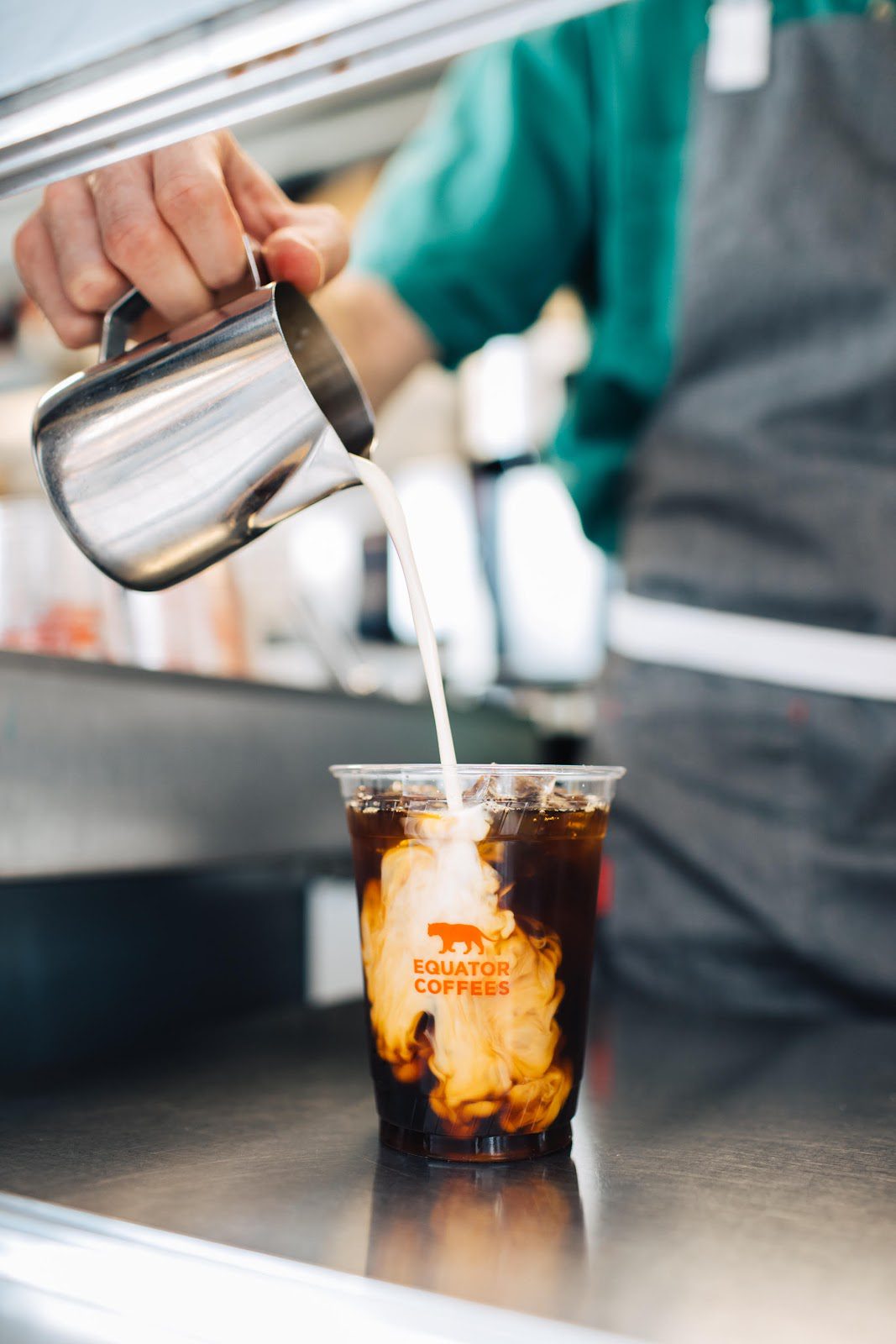
In 2016 Equator won the National Small Business of the Year from the Small Business Administration, the first LGBTQ+-owned business to win the award. “There’s been many times when Helen and Brooke have been the only women in the room and not only the only women, but the only gay women,” Devorah said. “That’s been challenging, but, I think helped shape who Equator is because we are looking at the world through a different lens and having a lot of empathy and open mindedness to folks who do need more support.”
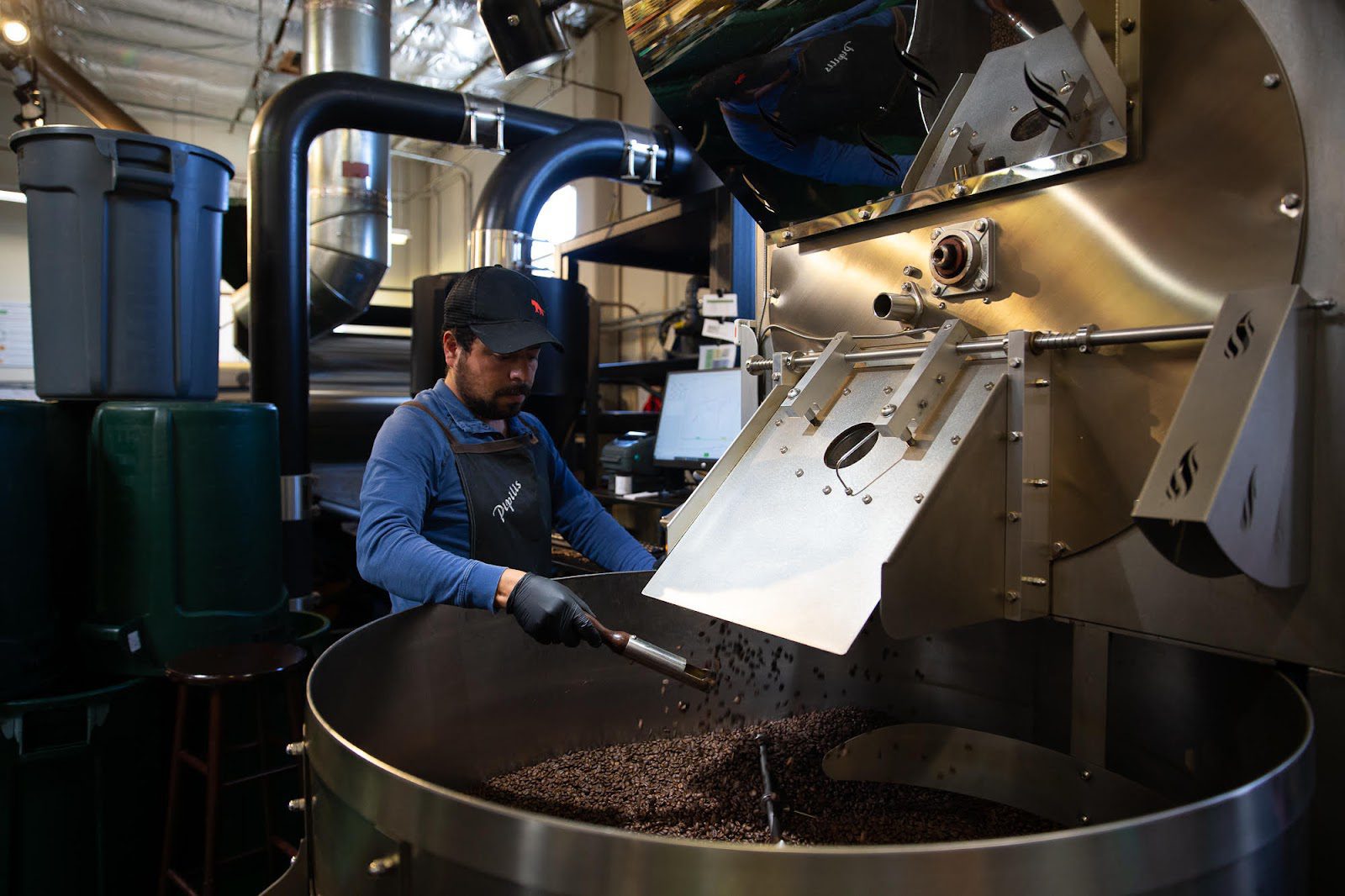
Equator’s national recognition as a company doing good business, should come as no surprise. They support so many global and local social programs that it’s almost impossible to count. Equator donates $1.00 for every bag of WBR Blend to World Bicycle Relief, an organization that provides people in developing nations with durable bicycles designed for rural communities. “Bicycles can change lives like they just can and do, especially in rural communities, and particularly to women and girls,” shared Devorah. “You know, the high dropout rates for girls going to school, in some communities is that girls don’t feel safe walking to school even walking in groups, because there’s predatory men. You put them on bikes, and they’re untouchable, it’s life changing.”
In the United States Equator is also equipping kids with a pair of wheels. Next January they will hold a fundraiser for Trips for Kids to provide underserved children in the Bay Area with the independence and freedom to get out of the house and access the world. “If you don’t have the means to drive to the parks, beaches and biking trails in the Bay Area, there are a lot of kids, a lot of families not partaking in this natural wonder,” said Devorah. “So Trips For Kids loans out bikes, they allow kids to like build bikes and earn bikes through their bike kitchen program.”
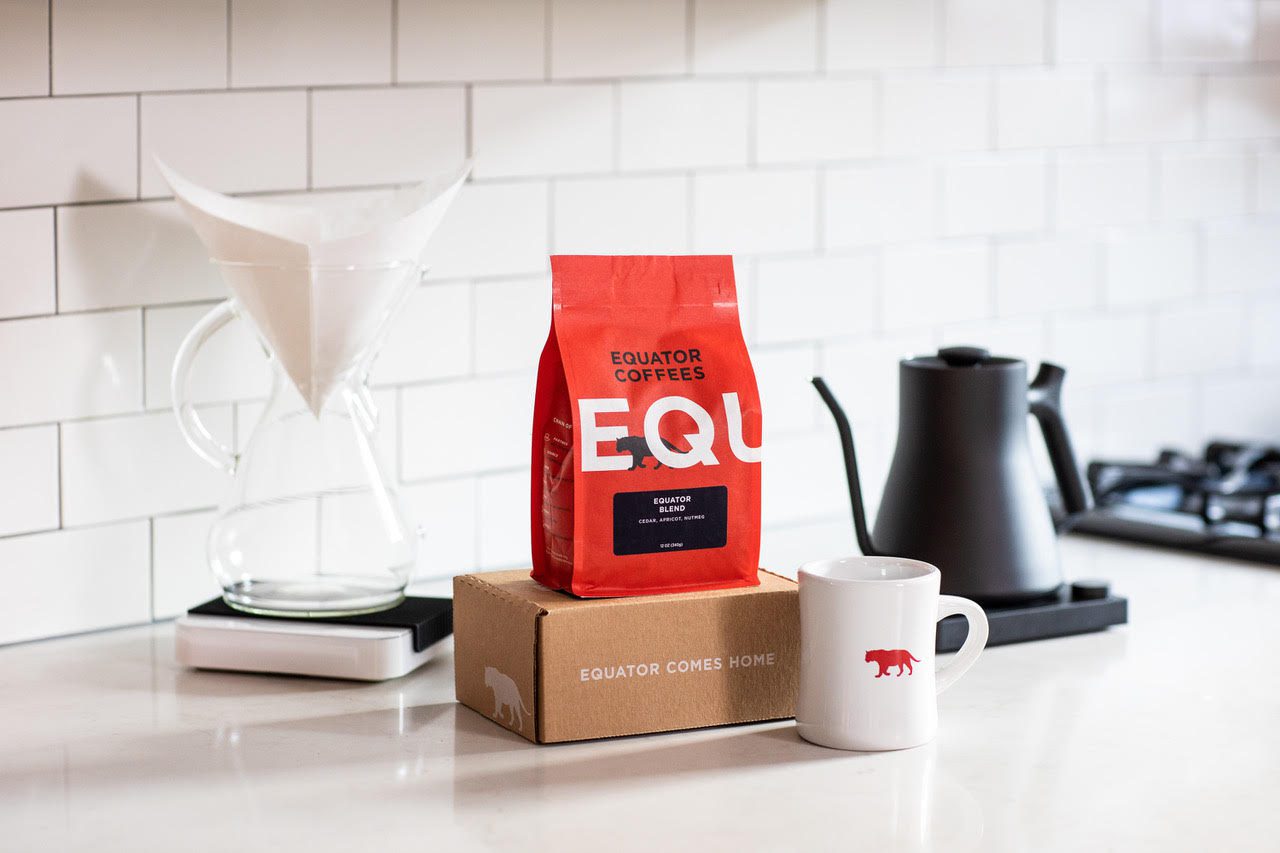
Another organization Equator works with during the holiday season is Adopt a Family of Marin since the holidays are an extra difficult time for families struggling to make ends meet. “This year, we’re doing a coat drive with Adopt A Family of Marin at our cafes, because we’re always looking to get ahead of problems.” Devorah shared, “You don’t think of a coat as being on a Christmas list, right? It’s a necessity. We’re asking the folks who are affluent enough to go to the cafe every day to pick up an extra coat or buy a coat for a kid in need.”
To help communities in the food and beverage industry, Equator partnered with three time Michelin-Star winner Chef Thomas Keller and Dominique Crenn as well as Tyler Florence to develop their own personal blends. For each bag sold of their collaborations at least $1 is given to their respective non-profit organizations, aiding restaurant industry professionals facing unanticipated hardship. Each bag of coffee is a tasty testament to how good coffee can do good in the world as well.


